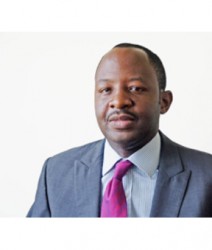With draft legislation designed to level the playing field in the local telecommunications sector still on the parliamentary agenda after more than 18 months, Digicel continues to demonstrate what, outwardly at least, is a fair measure of patience over the lengthy delay.
Industry watchers have expressed the view that Digicel, at this stage, would be more than justified in voicing public frustration over the delay in the passage of legislation which would grant it equal access to the local telecommunications sector. However, the company’s recent, brief statement,

made in response to a question raised by Stabroek Business, bore no change from the customary posture of forbearance it has assumed over the years.
As he has done previously, Digicel’s Chief Executive 0fficer Gregory Dean last week restated the view that the full liberalization of Guyana’s telecommunications sector represents “the key to further investments in the industry”. Dean is predicting that the hastening of liberalization will help realize “not only not only new and enhanced products and services, but through real competition, “greater affordability for customers”.
The comment is consistent with the cautious line that Digicel continues to take on the liberalization issue despite what is widely believed to be a considerable measure of frustration over the existing monopoly enjoyed by the Guyana Telephone and Telegraph Company (GT&T). In response to previous indications regarding the imminent passage of legislation designed to end the monopoly Digicel had held out promises of new and enhanced products and services in areas such as international calling and information and communication technology among others.
What, some two years ago, appeared to be the inevitable passage of legislation that would place the two telecommunications service providers on a level playing field was halted by what Digicel had said was the possibility of litigation between the Government of Guyana and Atlantic Tele Network, the majority stakeholder in GT&T.
In his recent statement Dean again sought to establish a strong link between liberalization of the telecommunications sector and reduced service costs for local consumers. “Experience with competition in the mobile domestic sector in Guyana has shown that prices have more than halved while quality and range of services have improved,” Dean said.
”Digicel is hopeful of an expedited Parliamentary Select Committee process and the early passage of the two bills into law given that to date all the major political parties have supported the need to liberalize the sector,” he added.





